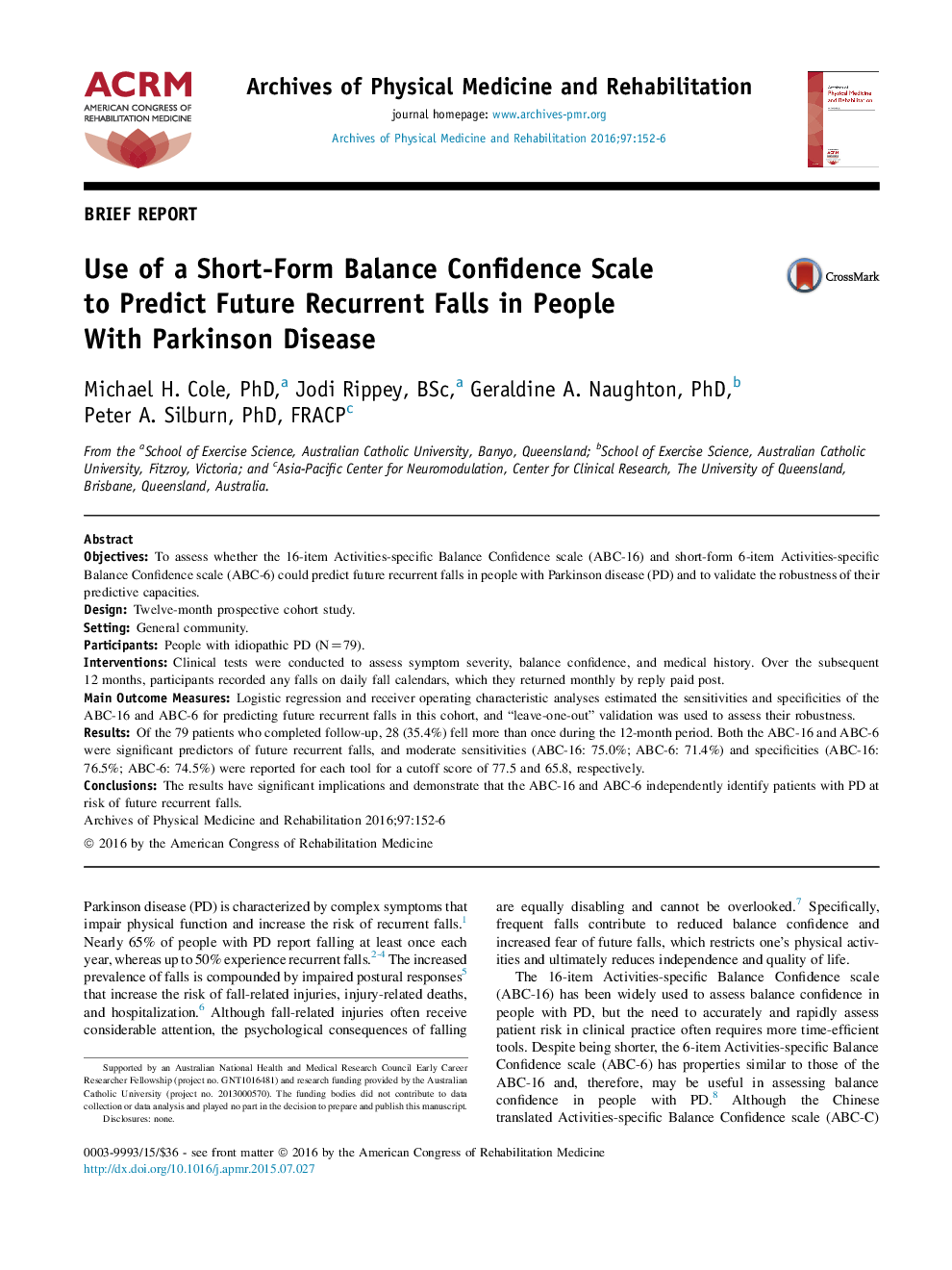| Article ID | Journal | Published Year | Pages | File Type |
|---|---|---|---|---|
| 3448027 | Archives of Physical Medicine and Rehabilitation | 2016 | 5 Pages |
ObjectivesTo assess whether the 16-item Activities-specific Balance Confidence scale (ABC-16) and short-form 6-item Activities-specific Balance Confidence scale (ABC-6) could predict future recurrent falls in people with Parkinson disease (PD) and to validate the robustness of their predictive capacities.DesignTwelve-month prospective cohort study.SettingGeneral community.ParticipantsPeople with idiopathic PD (N=79).InterventionsClinical tests were conducted to assess symptom severity, balance confidence, and medical history. Over the subsequent 12 months, participants recorded any falls on daily fall calendars, which they returned monthly by reply paid post.Main Outcome MeasuresLogistic regression and receiver operating characteristic analyses estimated the sensitivities and specificities of the ABC-16 and ABC-6 for predicting future recurrent falls in this cohort, and “leave-one-out” validation was used to assess their robustness.ResultsOf the 79 patients who completed follow-up, 28 (35.4%) fell more than once during the 12-month period. Both the ABC-16 and ABC-6 were significant predictors of future recurrent falls, and moderate sensitivities (ABC-16: 75.0%; ABC-6: 71.4%) and specificities (ABC-16: 76.5%; ABC-6: 74.5%) were reported for each tool for a cutoff score of 77.5 and 65.8, respectively.ConclusionsThe results have significant implications and demonstrate that the ABC-16 and ABC-6 independently identify patients with PD at risk of future recurrent falls.
